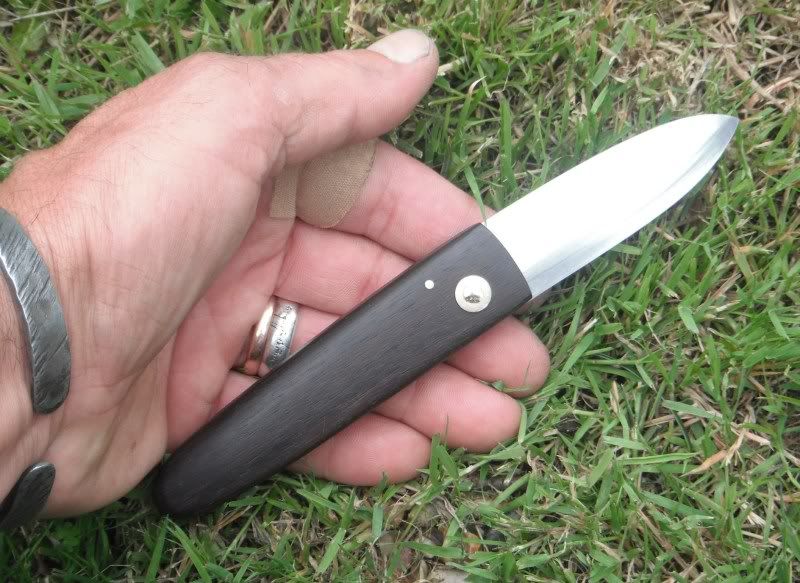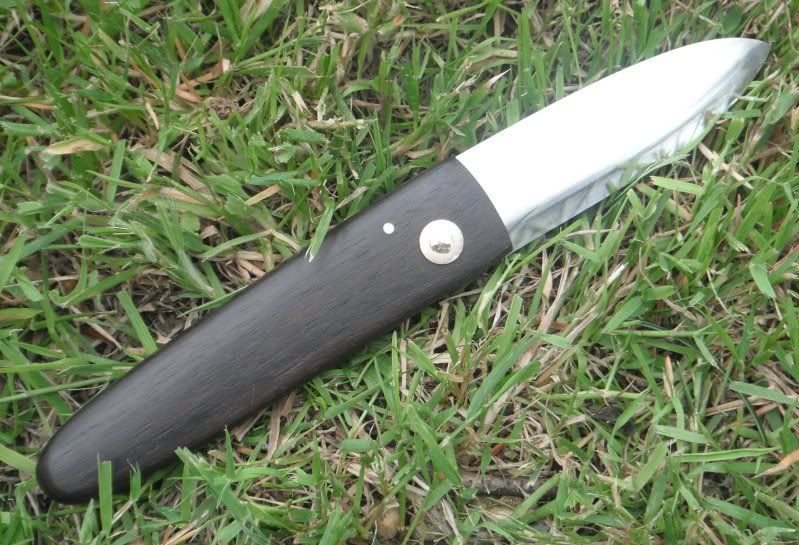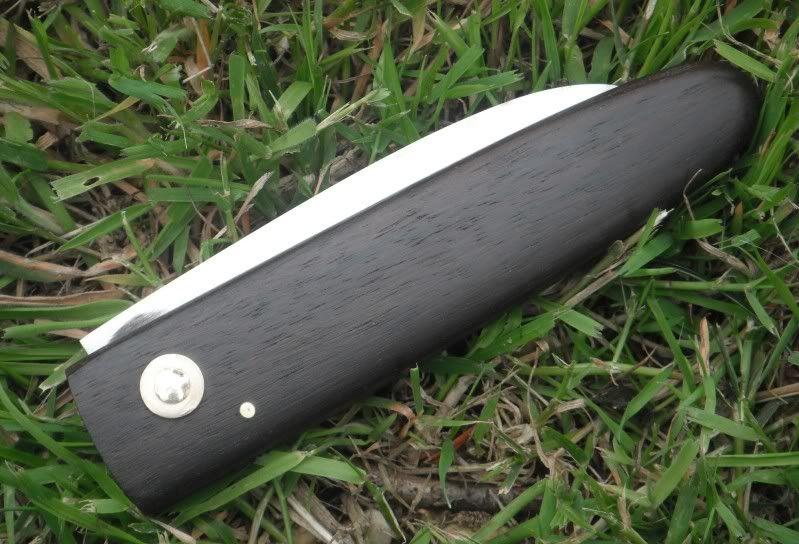Recently, I have been looking at old french country knife designs, particularly folding pocket knives. What strikes me is the simplicity of many utilitarian, every day users. These little pocket knives were often called "couteaux a deux clous", meaning two nails' knives, with reference to the pivot and the one stop pin. They were basically friction folders, often made with goats horn handles, a simple forged blade (although not all blade were simple in shape) and a couple of riveted nails. Thet were often chunky, with a wide blade that could take repeated trips to the gring stone and last a long time.
I have made a couple of those so far, one I showed a while back, based on a Corsican knife.
And I finished today this little one. A one piece dark Walnut handle, the 3 1/2" long blade, with a cutting edge of under 3", and 2 pins. Can't get much simpler than that for a folder!



I see this one as a light duty pocket knife, but nevetheless, a knife that can perform quite well, with some caution in holding it. Many of those "peasant's knives" were made that way, and I would have thought the design would have long died or evolved differently if they had really been a dangerous form of tool.
I have made a couple of those so far, one I showed a while back, based on a Corsican knife.
And I finished today this little one. A one piece dark Walnut handle, the 3 1/2" long blade, with a cutting edge of under 3", and 2 pins. Can't get much simpler than that for a folder!



I see this one as a light duty pocket knife, but nevetheless, a knife that can perform quite well, with some caution in holding it. Many of those "peasant's knives" were made that way, and I would have thought the design would have long died or evolved differently if they had really been a dangerous form of tool.

